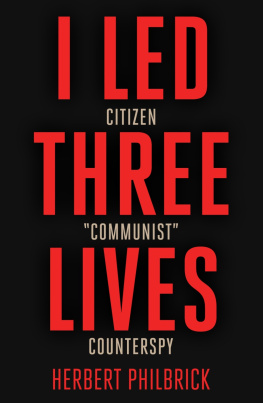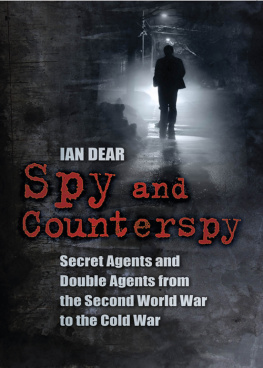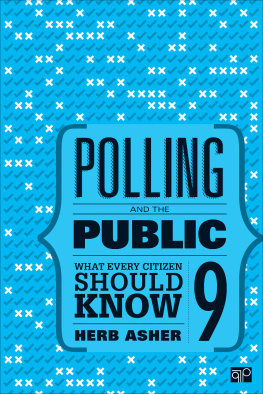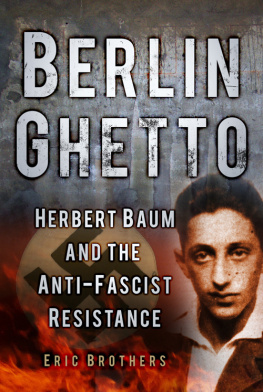Burtyrki Books 2020, all rights reserved. No part of this publication may be reproduced, stored in a retrieval system or transmitted by any means, electrical, mechanical or otherwise without the written permission of the copyright holder.
Publishers Note
Although in most cases we have retained the Authors original spelling and grammar to authentically reproduce the work of the Author and the original intent of such material, some additional notes and clarifications have been added for the modern readers benefit.
We have also made every effort to include all maps and illustrations of the original edition the limitations of formatting do not allow of including larger maps, we will upload as many of these maps as possible.
I LED THREE LIVES
CITIZEN COMMUNIST COUNTERSPY
HERBERT A. PHILBRICK
I Led Three Lives was originally published in 1952 by Grosset & Dunlap Publishers, New York.
* * *
Many names used herein are Communist party aliases. Should one of these prove to be the name of a person entirely unaffiliated with Communist activity, it is a matter of pure coincidence.
The names of business, philanthropical, political, and religious organizations are also to be found herein. In each case no criticism of these organizations is intended although it may have been necessary to point out how a Communist used the groups fine reputation as a front for underground activities.
* * *
TO EVA, MY WIFE
Who proved that a woman can keep a secret
CHAPTER ONE
Nine long years led me breathlessly down a tightrope to a small platform and a chair. It was a dozen paces through a doorway now to the end, almost within reach. The nearness made my prison seem smaller and more suffocating. I was held in the shadows of a darkened elevator. Outside the elevator door a special agent stood on guard. I must not be seen until the moment ripened.
It was 2:05 oclock in the afternoon of April 6, 1949. Beyond the guard, whose back was turned, I could glimpse the crowded courtroom, hear a murmur of words and the rustle of the crowd. I shifted uneasily on my feet. There was nothing to sit on in the blacked-out elevator. I watched the bailiff on the side of the room that was open to my view, waiting for his signal.
Then I heard the District Attorney say, Shall I proceed? Mr. Bailiff, will you call Mr. Herbert A. Philbrick. The moment had arrived. The bailiff nodded in signal. My guard motioned me to go. It was only a few quick paces through the doorway and onto the platform. The spectators in the crowded Foley Square courtroom moved restlessly, whispering and following me with their eyes.
The light in the vast room was diffuse. My racing thoughts, the hum of voices, and my vision of the room spun dizzily together in my brain. A circle of upturned faces whirled past me. I braced myself to recover my balance. A single figure rose out of the crowd, and I heard him speak.
Do you solemnly swear... The mass of faces spun away, but one long row came distinctly into my view, separated itself from the crowd, and stood out ..to tell the truth.... Directly across from me at the end of the row was Jack Stachel, an unbelieving look on his face, as if a dangerous name had been tailed out of his past. Farther along I saw Bob Thompson, who also recognized me from earlier days. He sat morosely, chin pulled in against his big neck causing heavy pouches to bulge....and nothing but the truth...John Gates I remembered from Boston functions, also Henry Winston, his big shoulders hunched, powerful hands clasped in front of him, his face brooding and stony. Eugene Dennis reddened with anger beneath his brittle shock of graying hair...so help you God?
I do. My response startled me. I sat down stiffly, and glanced quickly around the room. For this moment I had been smuggled lo New York. For this moment my presence, my very existence, had been meticulously guarded. My address was unknown even to my wife. For this moment I had somehow managed to live through nine yearsfor this moment and for this place, the United States District Court in the Southern District of New York.
High on the judges bench, close by my right side, sat Judge Harold R, Medina, dignified in his robes and his spectacles. A long, polished table stretched across the center of the room almost at my feet Behind it, in varying attitudes of defiance, sat eleven men in a rowThe Eleven. I knew why they were there. United States of America, plaintiff, vs. William Z. Foster et al., defendants. They were accused of conspiracy to teach and advocate the overthrow of the government of the United States by force and violence. These were nominally the top leaders of the Communist party in the United States, exclusive of their chairman, Foster, who for reasons of illness was granted a severance of trial. They were there to answer to a little-known law, the Smith Act at 1940, making such teaching and advocacy illegala law never before fully tested in the courts, and regarded with scorn by the defendants. I knew that The Eleven did not know why I was therenot yet. But the sands of nine years were fast running out in the courtroom at Foley Square.
Nine years of conspiracy, uncertainty, fear. Nine years in the shadows where glances must be furtive, where I looked in vain for the face of a friend I could talk to. Days of deception and guile, plotting every move, guarding my words, gestures, even my thoughts. Blind calls from telephone booths; the drop of a coin; a code number; hushed instructions hurriedly given. Sleepless nights and secret meetings on darkened street corners, where automobiles drove up, swallowed me, and whirled away. Nine years with my face smothered in a mask that could never be taken off; no face of my own to look a man in the eye and say, I am Herbert Philbrick.
Mr. Philbrick. I started inwardly at the voice, but training and habit checked me from giving any outward sign. Where do you reside? My eyes shifted slowly, inexpressively, to the speaker. It was Frank Gordon, special assistant to the United States Attorney General. The examination was starting. I slowly let out my breath.
I live in Melrose, Massachusetts, which is a suburb of Boston. An average community, an ordinary neighborhood.
What is your occupation?
For the past fifteen years Ive been in advertising. Yes, I had led an ordinary lifeHerb Philbrick, Citizen. The questions seemed to come from far off. The answers were automatic.
Have you ever been a member of the Communist party of the United States? I felt a stone slab drop down, and I seemed to hear my voice sealed in the silence of a nine years secret. I had led two lives, the second life secret, unknown to my parents, my employers, my friends, my business associates.
Yes, I have been a member of the Communist party sincewellfor the past five years.











